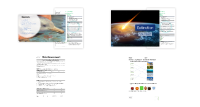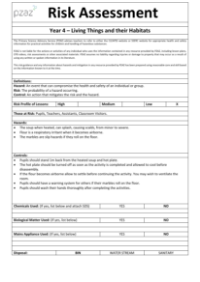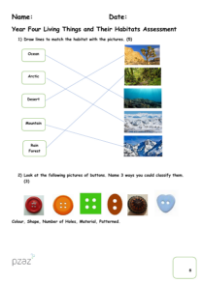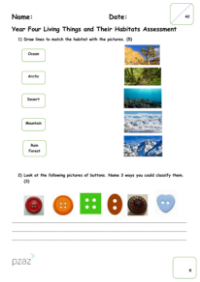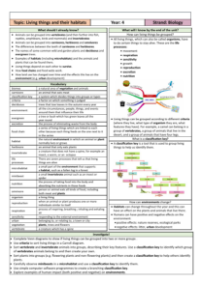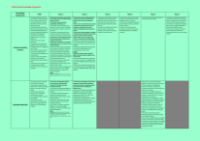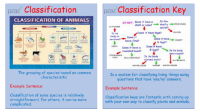Habitats - Vocab Assessments
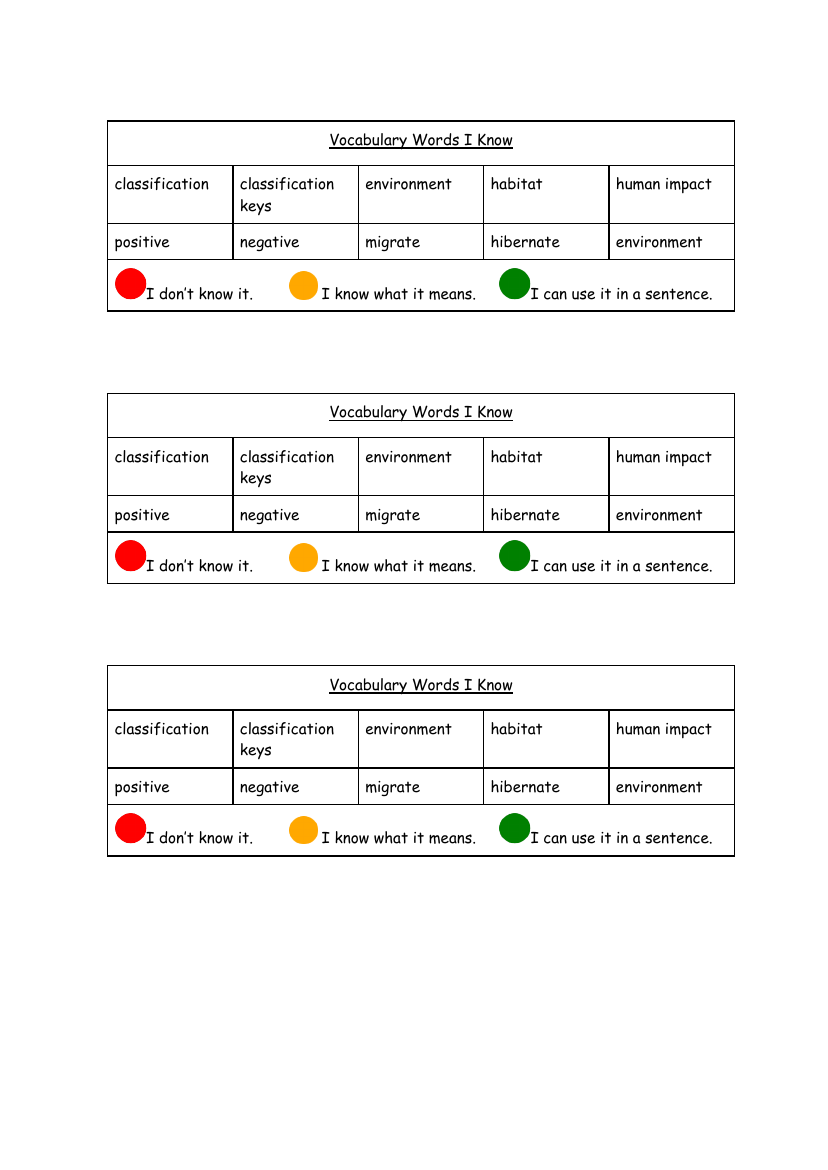
Science Resource Description
In an educational setting, vocabulary assessments are crucial for understanding and using subject-specific terminology effectively. This particular assessment focuses on key vocabulary related to habitats. Students are asked to self-evaluate their knowledge of words such as 'classification', 'keys', 'environment', 'habitat', 'human impact', 'positive', 'negative', 'migrate', and 'hibernate'. The assessment is structured in a way that encourages learners to categorise their familiarity with each term into three levels: not knowing the word, knowing what it means, and being able to use it in a sentence. This tiered approach helps educators gauge not only recognition but also the depth of understanding and application of vocabulary.
The process of self-assessment allows students to reflect on their knowledge of words like 'classification', which refers to the systematic arrangement of organisms into groups based on similarities, and 'keys', which are tools for identifying unknown organisms. They also consider ecological terms such as 'environment', the surrounding conditions affecting organisms, 'habitat', the natural home of a species, and 'human impact', the effects of human activities on ecosystems. Additionally, they assess their understanding of concepts like 'positive' and 'negative' impacts, the seasonal movements of 'migrate', and the dormancy of 'hibernate'. By identifying which words they can confidently use in context, students demonstrate their readiness to engage with the topic of habitats more deeply.

